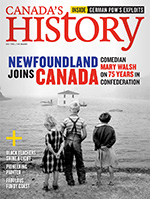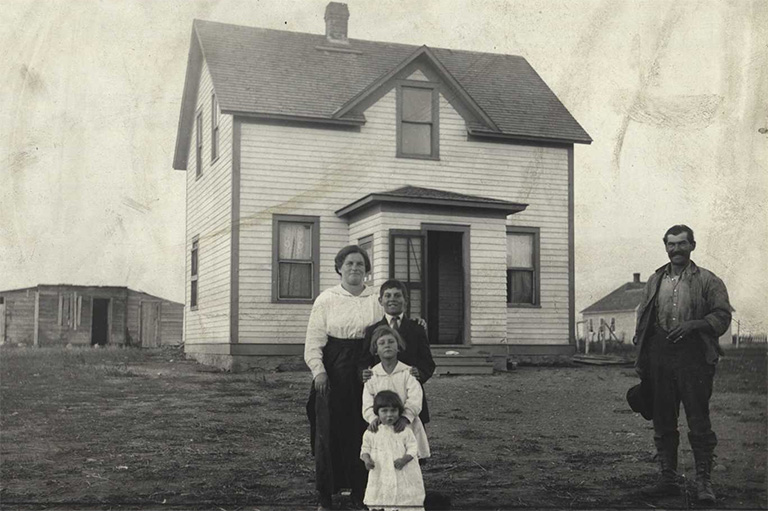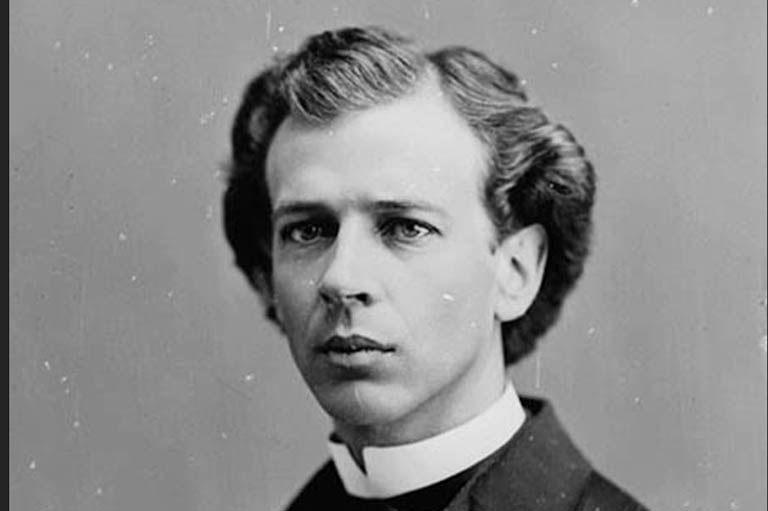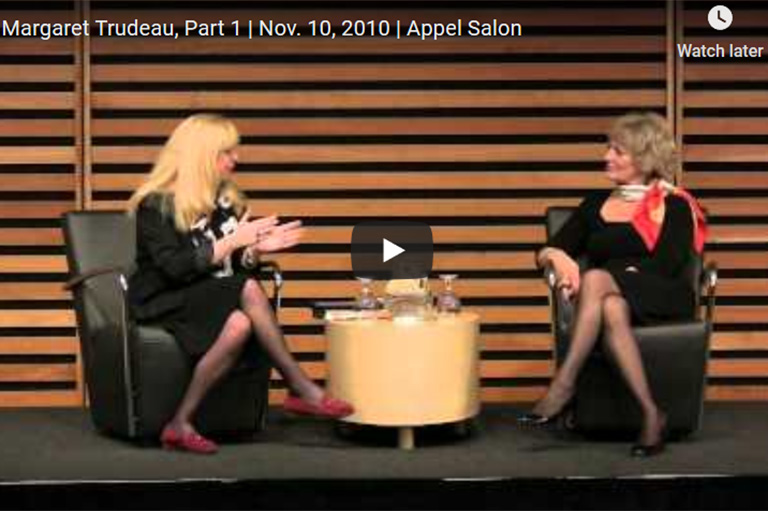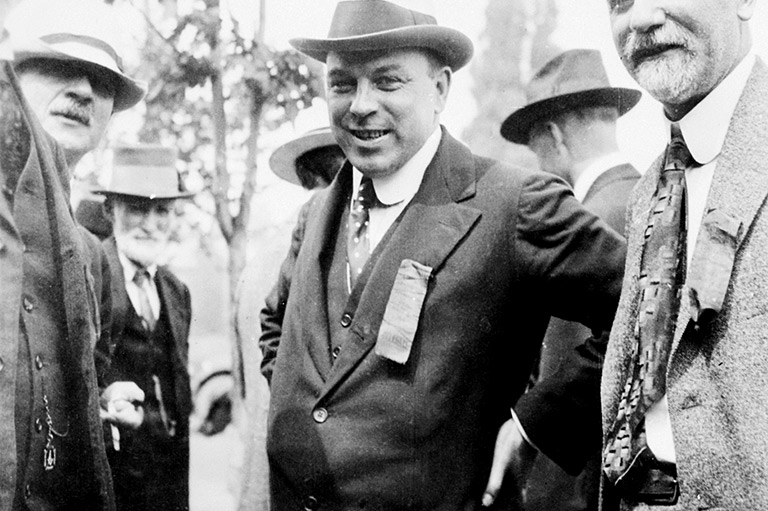Discover a wealth of interesting, entertaining and informative stories in each issue, delivered to you six times per year.
Canada's Father Figure

The opinion of The Times of London was that Canada lacked “the body, the vital organs, the circulation, and the muscular force to give adequate power to these wide-spread limbs.” The view of the New York Times was: “When the experiment of the ’Dominion’ shall have failed, as fail it must, a process of peaceful absorption will give Canada her proper place in the Great North American Republic.” The most telling observation was by Lord Monck, Governor General during the struggle to achieve Confederation. After returning home, the retired Monck told the House of Lords that “it was in the interests of the Mother Country that [Canada] should be taught to look forward to independence."
Canada needed to “be taught” to become independent because the map of Europe was being transformed. Almost out of nowhere, Germany was emerging as a major power.
It had just defeated the Austro-Hungarian Empire and, yet more amazingly, would soon do the same to France. Britain needed henceforth to look to its backyard; the last thing it needed was some kind of second War of 1812 precipitated by some incident along Canada’s long, indefensible border.
For the sake of saving face, and for also upholding honour, the British would never push Canada out of the Empire; they would, though, do all they could offstage to encourage it to leave of its own accord, an objective explicitly spelled out by the colonial secretary to one governor general.
Other excellent reasons existed for the doubts that Canada could survive. In the wonderful phrase of American journalist Horace Greeley it was “an eel-skin of a settled country” absurdly elongated but hopelessly narrow with huge gaps between its scattered settlements.
It could never become a conventional nation-state because it was composed of three nations — English, French, Aboriginal — and none of them trusted or liked each other. All the logic of geography, commerce, finance, trans portation, and even demography made it clear that God, or nature, had intended Canada to be a northern extension of the dynamic, energetic nation south of the border.
Two forces caused logic never to be fulfilled. One was the odd, near-inexplicable determination of the great majority of Canadians not to become Americans. In a rare instance of pan-Canadian solidarity, this held true for francophones, anglophones, and Aboriginals.
Why this was the case isn’t easy to pin down. One reason is that the myth of the Loyalists mattered a great deal, particularly because in those days loyalty — to spouse, to employer, to family and kin and ethnic and religious group — was near the top of the list of civic virtues.
Other reasons included the thrill of belonging to the greatest empire since that of Rome; widespread admiration for British law, Parliament, and history; and the certitude of being morally superior to the rough-and-tumble Americans.
The other determining force was contained within a single person — John A. Macdonald. Almost certainly — conclusively so, in this author’s opinion — had there then been no Macdonald there would today be no Canada.

The name “Canada” would linger on, if at all, as a brief Wikipedia note about an improbable northern statelet that quickly yielded to irresistible logic, so making all of North America one, from the Rio Grande to the North Pole.
Macdonald never deviated from the purpose of his public life, which was to make certain that Canada did not become America. His most testing times came during the period from about 1881 on — an era historian J.M.S. Careless has called “Canada’s age of failure.” This was when one in five Canadians left for a better life below the border, while almost all the immigrants Macdonald counted on to make an economic success of his financially lunatic transcontinental railway went instead to the far-more-developed American West.
He never gave up, sticking to his determination to gain for the fragile, unformed nation enough time “to harden from gristle to bone.” This he accomplished, the climax coming in his last election in 1891. He was by then seventy-six, tired, and sick, but he convinced Canadians to vote against their own pockets by rejecting the Liberal promise of cross-border free trade to reinvigorate the depressed economy. Instead, they were asked to vote for “The Old Flag, the Old Policy, the Old Leader.”
He won, but died a few months later.
Macdonald thus never knew that his last stand was applauded, in private, by the U.S. president of the time, Benjamin Harrison. Harrison, who opposed free trade, told his secretary of state that he could not see how free trade by so small a nation with so weak an economy could not but lead it into full economic union and, soon afterwards, into political union with the U.S.
To describe John A. Macdonald as the ablest political leader Canada has ever been lucky enough to have is to do him an injustice. Among all democratic leaders anywhere in the nineteenth century, it is hard to identify any abler but U.S. President Abraham Lincoln and British Prime Minister Benjamin Disraeli. In a certain sense, he had to be even more guileful and adroit than either of them. They, living in advanced societies, could count on advice from a considerable number of first-rate minds. In the small, poor, provincial colony of Canada of Macdonald’s day, few could provide him with the counsel and criticism any leader needs. He wasn’t entirely alone: George Munro Grant, Queen’s University’s first principal, for instance, was one of his advisers. But mostly Macdonald had to make it up himself as he went along — inventing, with no role model to guide him, the practice of picking a Cabinet that was a representative miniature of the nation, regionally, ethnically, and by religious faith.
To confirm Macdonald’s exceptional political credentials is easy. British historians regularly describe as the first modern election under the British parliamentary system the Midlothian by-election waged in 1879-80 by William Gladstone, then opposition leader, who went out among the voters for the first time by a whistle-stop train tour and gave them a specific reason to support him in the form again unprecedented, of a platform calling for Britain to adopt a humanitarian foreign policy.
Those British historians got it wrong — not by applauding Gladstone but by overlooking Macdonald. He pioneered modern election campaigning in 1876–78. Then in opposition, he staged political picnics across the country, offering free food, lemonade, and beer to voters of all persuasions. He then got onstage and traded jokes and jabs with the Liberals.

Macdonald took to politics the instant he entered it. He stood out from all the others by wearing notice-me clothes — a bright red cravate and checked trousers, unlike everyone else’s uniform grey. He was uncannily modern. At a time of high rhetoric, Macdonald always spoke colloquially; his speeches were short, typically just twenty minutes; he never used a prepared text. He loved being heckled, taking good care to taunt any Liberals present into denouncing him, almost always handily winning the exchanges.
He was genuinely funny, unlike any predecessor or successor (Pierre Trudeau possessed a rapier wit but always with a sharp edge). Once, while campaigning in southern Ontario, he mounted a piece of farm machinery to better project to a gathering of farmers. When someone pointed out he was standing on a manure spreader, Macdonald pondered a moment and retorted, “This is the first time I’ve stood on the Liberal platform.”
When a suffragette demanded to know why he but not she had the vote, he considered the puzzle and replied, “Madame, I cannot conceive.” He passed with flying colours the ultimate political test. Of seven elections he won all but one (he lost after the CPR scandal). And, as would be unimaginable today, he won twice when the economy was in state of all-out depression.
But while Macdonald’s political skills matched those of any democratic leader of his century, as a statesman he was less accomplished. For instance, he never appealed to people’s “better angels,” as did Lincoln and Gladstone, if not Disraeli. Macdonald is viewed by many Canadian historians, and by many ordinary Canadians, as an exceptionally clever, very charming politician who possessed little else — no vision, no creativity, and no ideas but the tactical stratagems of a pragmatist and opportunist—as well as being corrupt and cynical, and a drunk. Actually, he gave up drinking in the mid-1870s and wasn’t so much a cynic as a realist — most especially so about human nature, as in his observation that no leader should “ever count on gratitude from the public.”
There was a great deal more to Macdonald than being merely an artful politician. He was highly intelligent and exceptionally well-read, consuming not just the obvious books on politics, law, and biography but also novels and plays, and philosophy and travel. Disraeli spotted that there was far more to him than just charm.
They met once, in 1879, when Disraeli invited him, while in Britain, to come to his country house, Hugenden. They dined alone and afterwards talked in the library until the early hours of the next day.Disraeli’s later diary comment on Macdonald was, “he is a considerable man.” One reason for this assessment was that the subject they discussed at greatest length was “the poets and philosophers of Greece and Rome.”

Instances of Macdonald applying his talents to purposes that had nothing to do with winning the next election can be cited at length. Several follow immediately. Afterwards will come an instance that will amaze almost all readers, both because it is so original and enlightened but also because its existence will be utterly unknown to any reader (excepting early readers of the book, Nation Maker from which this essay is derived). The reason for this ignorance, one all but incomprehensible, is that this country’s historians have been ignorant of this accomplishment.
A good start to any accounting of Macdonald’s accomplishments is his creation of the North-West Mounted Police in 1873, an achievement that vanished from the memory of historians and the general public until revived a century later by a 1972 article in Canadian Historical Review. Written by RCMP historian S.W. Horrall, it was titled, “Sir John Macdonald and the Mounted Police Force.” Macdonald conceived the project in the summer 1869 as part of his preparations for the impending takeover of the Hudson’s Bay Territory In one speech he proposed that the force be composed “of a comingling of the races,” with Metis and Natives as well as English and French. It was an unprecedented attempt at ethnic inclusiveness but was made impossible politically by Louis Riel’s resistance to the takeover of the territory. Not until September 1873 did Macdonald bring the enabling legislation into the Commons, getting it passed just four days before the Canadian Pacific scandal removed him from office.
The legislation was Macdonald’s personal work. Its most important passage described the NWMP’s mandate as “the preservation of peace, the prevention of crime"— that is, not to punish crime but to pre-empt it by giving police officers the mission of getting to know, of befriending, and of earning the trust of both Aboriginals and settlers, treating both impartially, and indeed most often by protecting Native people from the newcomers. The consequence was a Canadian West utterly different from its U.S. equivalent: here, peace, order, and good government; there, vigilante justice and the rule of the gun.

If belatedly, this story is quite well-known — his idea of “comingling the races” excepted. Of Macdonald’s well-known National Policy of protective high tariffs, the most interesting aspect is quite unknown. Macdonald enacted this project in 1879. Almost never mentioned is the fact that what he was doing was being done at the same time by the nineteenth century’s ablest statesman (if no democrat) — Otto von Bismarck. Macdonald’s objective was to move Canada towards true nationhood by giving its citizens reasons to buy and sell from each other. In Germany, Bismarck likewise imposed high tariffs so that Germans might cohere into a single nation rather remaining an assemblage of principalities, statelets, bishoprics, and the rest. The solitary mention of this intriguing cross-Atlantic similarity is contained in a 1976 master’s thesis for the University of Windsor by Suzanne Keller.
Macdonald’s capacity for imagination and generosity towards French-Canadians is well known. He famously told Conservative MP Brown Chamberlin: “Treat them as a nation and they will behave as a free people usually do — generously. Call them a faction and they become factious.” That was in a private letter; in public, he went further still. In the late 1880s, a severe backlash arose against bilingualism in the West. The movement’s leader was the able politician Dalton McCarthy. When McCarthy moved a resolution in the Commons to abolish the language guarantees contained in the North-West Territories Act, Macdonald, by then old and tired, intervened to say, “there is no paramount race in this country; we are all British subjects ... having equal rights of every kind—of language, or religion, of property and of person.” He intervened a second time to remind MPs that in 1793 the first legislators of the new Upper Canada Province, all English, had voted to publish all bills in both languages for the benefit of a few hundred French-Canadians out in the far west near present-day Windsor. Would present-day MPs, he asked, “be less liberal to our French-Canadian fellow subjects than were the few Englishmen, United Empire Loyalists?” In 1929, the great Quebec nationalist Henri Bourassa would cite this speech and go on to praise Macdonald as “the one man who best understood and to a large extent best applied the spirit of Confederation."

And now to one of the great unknowns of our history, the long silence about it being all the more incomprehensible because the evidence confirming it has all along been hiding in plain sight — in the pages of Hansard.
It concerns Macdonald and women. In this instance, Macdonald wasn’t being merely ahead of this time: He was being unique. In 1885, Macdonald became the first national leader in the world to attempt to extend the vote to women. (Women did gain the vote in eighteenth-century revolutionary France, but only briefly, and the Isle of Man, if indeed a country, as it claimed, enacted the necessary legislation in 1881.)
Whence Macdonald gained the idea, and why he then attempted to enact it, is impossible to know now. That early, the idea was entirely absent from public discourse in Canada, scarcely existed in Britain, and only flourished on the political margins in the U.S. because of the charisma of Susan B. Anthony. Yet early in 1885 he advanced the policy as part of his attempt to revise the Franchise Act (to revise it radically in his favour by transferring to Ottawa from the provinces the patronage over the selection of returning officers, so fully justifying the opposition’s ferocious fight against the legislation).
Macdonald spoke on April 27, 1885. He noted that the definition of “persons” should be broadened to include women, this being a half century before the deed would finally be done by the famous Person’s Case of 1929. He then explained why: “Mr. Chairman [the House then being in Committee], with respect to female suffrage, I can only say that I, personally, am strongly convinced, and every year for many years I have been even more convinced, of the justice of giving women otherwise qualified the suffrage [the universal requirement for possessing the right to vote being owning a minimal amount of property].” He continued, “I had hoped that Canada would have the honour of first placing women in the position she is certain, eventually, after centuries of oppression, to obtain ... of completely establishing her equality as a human being and as a member of society with man."
In a few sentences Macdonald had said everything that needed to be said: that the deed, “was only a matter of time"; that he hoped Canada could have the “honour” of being the first; and that women had endured “centuries of oppression.” He said something else even more extraordinary for the times, or for all the decades ahead, really down to the 1960s and the Royal Commission on the Status of Women. This was that women would inevitably eventually gain not just the vote but “equality as a human being and as a member of society with man.” He thus was arguing for comprehensive genuine equality, as no one had then done but John Stuart Mill.
Not long after his intervention, Macdonald withdrew these sections of the bill. His own bleu MPs from Quebec were unanimously opposed, and by one estimate only four Conservatives were ready to support him. But he had used a prime minister’s invaluable asset — possession of the best bully pulpit in the country — to point out the future to his people.
This extraordinary exercise in far-sightedness has attracted no interest from historians. Just one attempt to describe it in full exists, a 2009 M.A. thesis about the 1885 Franchise Act for Carleton University by Colin Grittner. Otherwise it has been ignored, by both historians and gender studies experts, or ridiculed, as by the chief electoral officer’s 2007 pamphlet, A History of the Vote in Canada. The pamphlet says, “the suspicion remains that Macdonald had inserted the clause as a sacrificial lamb, never intending that it survive final reading of the bill."
This is bunkum, as Macdonald would have said. Sacrificing lambs is pointless unless they are seen to be valuable. The worth to Macdonald of the gesture was a minus. It’s true that Macdonald was interested in attracting their votes — his secretary, Sir Joseph Pope, wrote in his memoirs that Macdonald “believed that women, as a whole, were conservative."
But even if the small number of women who might qualify all cast their ballots for him, Macdonald would have lost the votes of an incomparably larger number of men. Opposition MPs captured the mood of the time when they said the vote would “coarsen women” and that “Canadian women are more proud to be known as good mothers than as voters.” Even Macdonald’s wife, Lady Agnes, thought women should not “point their dainty fingers into the political pie."
Macdonald was unlike most men of his time, in that he was wholly at ease in the company of women and had no concern about women in public life. In the early 1880s, he broke social rules by attending a few meetings of the Salvation Army in Kingston, Ontario. Women could hold any position in the army, and the Kingston unit was headed by Captain Abigail Thompson. By attending meetings at which Thompson presided, he was doing something astonishing — he was showing his approval of women giving orders to men in public, an act that scandalized public opinion of the day.
Macdonald did not give up on extending the vote to women. In 1890 he asked his ministers for information about women voting in municipal elections — Ontario granted such rights to widows and spinsters in 1884, and other provinces followed. He also inquired whether they could be members of school boards. He had to have been gathering material for a speech. He never gave it because he died the next year after giving his all to prevent Canada negotiating a cross-border free trade pact that he — and the U.S. president — believed had to end in political union.
These, and others, were the acts of “a considerable man.” He’s worth a long second look.


